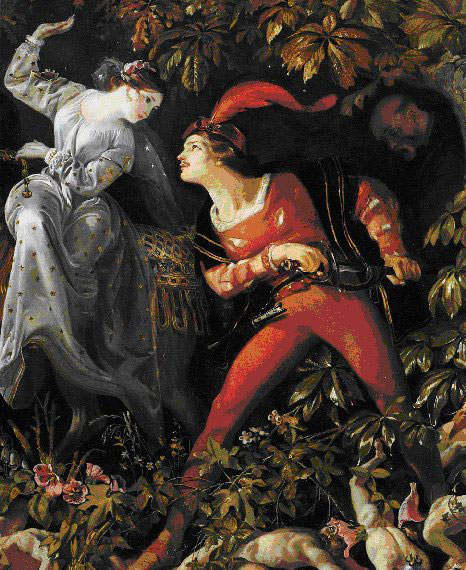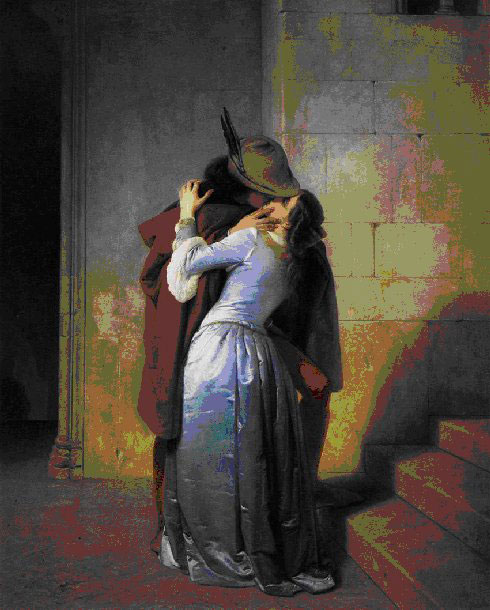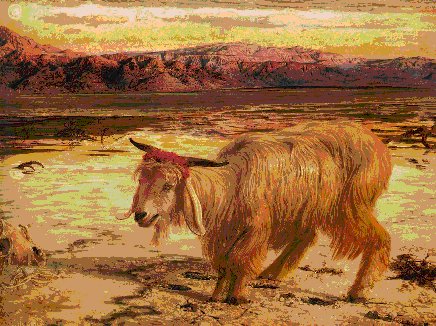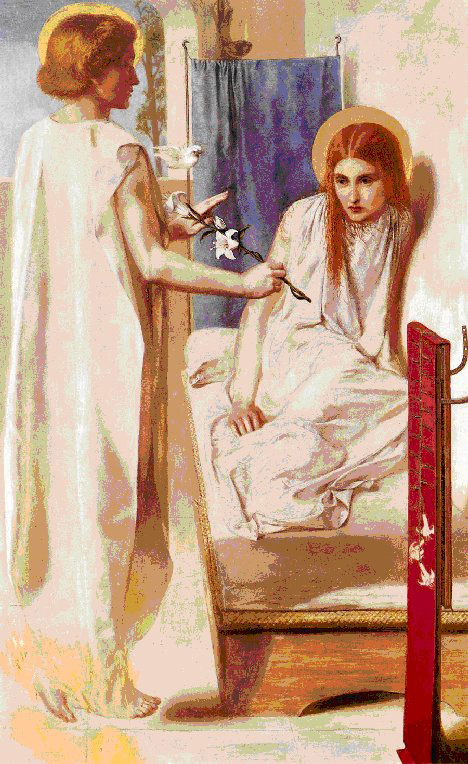Romanticism
Romanticism was a movement of the mid 1700s until the midpoint into 1800s; it was a movement of painting, art, and writing that emphasized warmth, color and softness.
I was very influenced in the early days of my writing by romantic French writers like Stendhal, Flaubert and Baudelaire who said: “Romanticism is precisely situated neither in choice of subject nor exact truth, but in the way of feeling.”
Many intellectual historians have seen Romanticism as a key movement when perceptions shifted as a reaction against the logical thinking that was then described as the Age of Enlightenment, during which time people felt reason and facts were the only way to go. Wikipedia says “While thinkers of the Enlightenment emphasized the primacy of deductive reasoning, Romanticism emphasized intuition, imagination and feeling.”

A Scene from ‘Undine’ (detail) 1843 (The Queen owns this one)
You can see the color and romance in this painting by Irish painter Daniel Maclise.
I realized that the things I teach today are a return to Romanticism for we seek to establish an order built on softness, colourful expression and tender sentiments. In a world of perpetual war and the grey, yang-style harshness of a scary media, and the cold logic of technology, and a New World Order that we don’t want, romanticism offers us a ray of hope—a softer way.
I’ve seen it manifest in myself as adoration and admiration, like watching a dog in the park, a baby in a carriage, an old lady hobbling across a street, a sunset in the desert. It is all about respect for Gaia and our humanity. It is about sensuality, love and esteem.

Francesco Hayez, The Kiss
The best of it comes to you as heightened perceptions once you become comfortable in your skin then you can look beyond yourself and truly see what is out there and how beautiful it really is. It is really an honouring of femininity and the soft things of life.

Painting by William Holman Hunt
Here is a painting of a goat by William Holman Hunt a romanticist of the mid-1800s. It is such a special painting. I love it so much. This is a ‘romantic animal’ in a soft setting and it has a little red head band so it’s a “going-to-a-party” type of goat, not a serious goat–different.
Celebration
I see the celebration of life in laughter and the appreciation of the amusing stupidities one sees in the street and the purple hopes that spring from illogical beliefs.
The million-to-one-shot, the victory of the rank outsider, the rescue of the hopelessly lost, the romance of the eternal optimist, the insanity of believing everything, and everyone, knowing it will all be alright in the end even if all the evidence suggests that the ship sunk a long time ago and we are in the lifeboats without a paddle. I am the madman that believes that some god somewhere still loves us and that we’ll make it in the end.
Perhaps romance is an addiction of the fool and then we might say, better to be the fool than to be just a dull grey clump of damp thoughts, rules and resentments. When I walk in the street I can feel people’s hatred as an etheric pain in my body. It is very sharp and distinct. It is as if a pedestrian passing me walks through my shoulder through my sinews and bones. I can tell with my eyes shut how far away a group of people are on the sidewalk up ahead by the level of pain in me. As they get closer it is more intense and as they pass it weakens.
Romanticism is a part of our luminosity it is a cure, not a global cure, just a one-person-at-a-time cure.
Gaze in the distance and hum. Hum that your soul might be delivered of its pain, bathed once more in the pristine waters of the tears of Gaia. To be made whole, radiant, luminous, an innocent child playing on the banks of the Lake of Avalon, every dream restored every hope still intact, every ache now passed away.
Yes indeed—pray for these things.
© Stuart Wilde 2008

Ecce Ancilla Domini! Dante Gabriel Rosetti 1850
